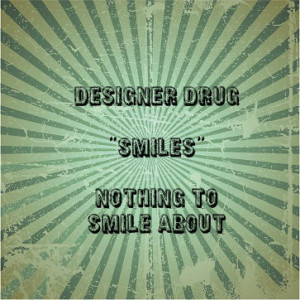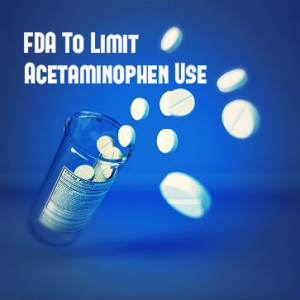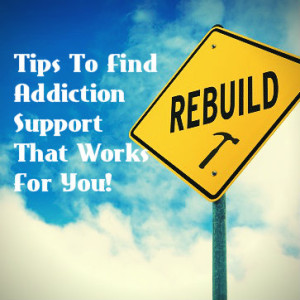Establishing a healthy romantic relationship is not always easy, but dating a former drug addict or alcoholic can present its own unique challenges. If you have met someone and you feel a connection you would like to explore, but have just found out he is in recovery, you may be wondering if you should go forward. If you do continue the relationship, you may wonder how it will work and what you may be in for. Finding out that someone you like is a recovering addict does not need to be a roadblock, but you should be prepared to meet the challenge.
Do Recovering Addicts Need Extra Support?
 Yes, a recovering addict does need support, more than you might expect. To fully understand what this person is going through, and has been through, you should read up on addiction. You should know that addiction is a chronic and lifelong illness. Even if he has been sober for years, he is still in recovery and he still feels the temptation to use again. This means that he needs support from the loved ones in his life. Support and sensitivity from you and from others is what keeps him strong and sober.
Yes, a recovering addict does need support, more than you might expect. To fully understand what this person is going through, and has been through, you should read up on addiction. You should know that addiction is a chronic and lifelong illness. Even if he has been sober for years, he is still in recovery and he still feels the temptation to use again. This means that he needs support from the loved ones in his life. Support and sensitivity from you and from others is what keeps him strong and sober.
Can I Drink Around A Recovering Addict?
A relationship with a recovering addict carries with it some unique characteristics. You may not be able to drink around him, or even engage in other activities like going to parties where drinking or drug use is present. Whether or not you can drink in front of him depends on his individual needs, but it is something you need to consider. You need to be sensitive to his weaknesses and how your actions impact him.
Will A Recovering Addict Relapse?
As you learn more about addiction, you will learn that like other chronic illnesses it comes with the likelihood of relapse. Roughly half of all addicts in recovery will relapse at least once and use again. If you are considering dating a recovering addict, this is something to consider. Will you be able to cope if he does relapse? How will you be prepared to handle the situation? If you are completely unfamiliar with addiction and have no experience with addicts, you may want to attend a few support group meetings or see a drug counselor to learn what to expect and how to help during a relapse.
Can I Trust A Recovering Addict?
One of the biggest issues in relationships with addicts, romantic or otherwise, is trust. Loved ones who have stood by an addict have experienced great breaches of their trust. Whether you will be able to trust an addict in recovery is up to you. Some people will feel they can never trust a former addict, while others may be able to suspend their doubts. The decision is personal and entirely yours to make.
Dating someone in recovery is different from dating someone who has never been an addict. There are downsides and challenges, but there are also some unexpected bonuses. Addicts who have been through therapy and treatment may have a better understanding of how to relate to others, how to communicate and how to develop and maintain healthy relationships. While you may question your ability to trust and worry about relapses, you may just find yourself dating someone who can bring much more to the table. He may be more sensitive, communicative and aware of your needs than anyone else you have dated.
Read More About If You Are Enabling The Addict In Your Life?
06 Mar 2014
What Is The Deadly New Designer Drug: “Smiles”?
Smiles is the street name for 2C-I, a potent synthetic hallucinogen that has psychedelic-like effects when ingested. Smiles belongs to the 2C family of compounds which includes another popular synthetic, 2C-B. This class of drugs is closely related to amphetamines, including methamphetamine. Smiles is often sold as a fine white powder or tablet, and is also mixed into candies. It can be snorted, smoked or eaten.
History And Distribution Of 2C-I
2C-I was first synthesized in the 1990s by chemist Alexander Shulgin, who is well known for synthesizing many other popular drugs. Smiles appeared as early as the early 2000’s in the Netherlands as a then-legal alternative to 2C-B, which had just been banned. Smiles was banned shortly after, in 2008, along with other 2C drugs.
The U.S. classified 2C-I as a Schedule I substance (meaning “no accepted medical value” and “high potential for abuse”) in 2012, making it illegal to make, distribute or possess.
The Dangerous Effects Of 2C-I
 Some compare 2C-I’s effects to a very potent dose of LSD (acid) or MDMA (Molly) because of hallucinations and a feeling of euphoria. This drug, however, appears to be much more dangerous. Side effects include the following:
Some compare 2C-I’s effects to a very potent dose of LSD (acid) or MDMA (Molly) because of hallucinations and a feeling of euphoria. This drug, however, appears to be much more dangerous. Side effects include the following:
- Nausea and vomiting
- Muscle spasms
- Paranoia
- Seizures
- Raised blood pressure
- Kidney failure
What Are The Dangers Of 2C-I?
Unlike the more common hallucinogens, such as LSD and psilocybin (magic mushrooms), which typically do not cause overdoses, 2C-I may cause severe bodily harm, even at small doses. The white powder form of 2C-I is impossible to tell apart from other substances, and it can easily pass off as LSD when mixed into candy or blotting paper, putting casual LSD users at risk of experiencing 2C-I’s more severe side effects, or worse, an overdose. In addition, 2C-I can be difficult to detect by emergency room doctors, with many toxicology tests coming back negative. This could be due, in part, to smiles being laced with other compounds. Like heroin and other synthetics, smiles is notoriously impure. There is currently no established lethal dose of 2C-I, but the drug has been implicated in a number of deaths, both in the U.S. and Europe.
“Smiles” Overdose Tragedies
According to local news reports, in the summer of 2012, 17-year-old Elijah Stai of Park Rapids, Minn., ingested a fatal dose of smiles in a candy bar given to him by a friend. Only an hour later, while hanging out at the local McDonald’s, Stai’s smiles trip took a turn for the worse. His distraught friends and other eyewitnesses describe him acting “possessed”: hyperventilating, making strange sounds and repeatedly hitting his head against the floor. His worried friends took him back home in an attempt to let him calm down and “ride out” the high, but the day ended in tragedy. Less than two hours later, Stai stopped breathing. His story was sadly mirrored by another death in a nearby city just the day before when police found the body of a teen on a sidewalk; he had also suffered a fatal smiles overdose. Police blamed both incidents on a “bad batch” of 2C-I that was circulating on the streets at the time.
The story of the teens serves as a somber reminder of how dangerous synthetic drugs can be. Even if most 2C-I “trips” end without any tragic consequences, there’s no telling how safe the next dose will be, or if it’s even pure 2C-I. Experts are urging extreme caution around these drugs and warn that teens are especially likely to experiment with them.
Read More About The Dangers Of Designer Drugs
05 Mar 2014
FDA Announces Plans To Limit Acetaminophen Use
The Food and Drug Administration (FDA) has asked healthcare professionals to stop prescribing high doses of the painkiller acetaminophen, which is used in Tylenol, Vicodin and Percocet.
The FDA hopes to reduce liver damage in patients taking high doses. Because many drugs contain acetaminophen, the chances of an inadvertent overdose for someone taking several different prescriptions are likely and very dangerous. Acetaminophen overdose is the leading cause of acute liver failure.
How Drug Makers And Pharmacists Will Be Affected
 Drug makers are also being asked to consider limiting the amount of acetaminophen in prescription drugs to 325 milligrams or less per pill. Over half of drug makers have agreed. Another step the FDA has taken is recommending pharmacists who receive multiple prescriptions from doctors that, when combined, contain more than 325mg of acetaminophen per dose, contact the doctor who prescribed it and discuss other options.
Drug makers are also being asked to consider limiting the amount of acetaminophen in prescription drugs to 325 milligrams or less per pill. Over half of drug makers have agreed. Another step the FDA has taken is recommending pharmacists who receive multiple prescriptions from doctors that, when combined, contain more than 325mg of acetaminophen per dose, contact the doctor who prescribed it and discuss other options.
Are Over The Counter Drugs Included In FDA’s Limit Of Acetaminophen?
The FDA is also attempting to make drug makers take any drugs containing more than 325 mg of acetaminophen off the market. The warning issued by the FDA does not apply to Tylenol and other over the counter drugs… for now.
Acetaminophen And Alcohol – Dangerous Combination
The FDA explained there is no available data to show that more than 325 mg of acetaminophen provides additional benefits, but it does increase the risk of liver problems. When combined with alcohol, the effects of acetaminophen are even more dangerous. They also report that acetaminophen has been known to cause life-threatening skin reactions, including blisters, serious rashes and the detachment of the upper surface of the skin.
Preventing Acetaminophen Overdose
To decrease chances of overdose, individuals taking pain medications and other medications should read the labels of their prescriptions. The FDA maximum recommendation for adults is no more than 4,000 mg of acetaminophen a day.
Read More On The FDA Urges Public To Beware Of Phony Adderall Sold On The Internet
On Jan. 1, 2014, legal recreational marijuana sales began in Colorado, with remarkably little fuss. Long lines appeared at the 37 stores across the state—mostly in the Denver area—that were fully licensed in time for the New Year, but any worries that the crowds might become disorderly proved to be unfounded.
Law enforcement was a major presence around the newly licensed establishments throughout the day to ensure that the crowds did not get out of hand, and to check the establishments for compliance. Stores selling marijuana must check IDs to ensure each customer is 21 years of age or older, and to determine each customer’s state of residence. Under the new laws, Colorado residents are permitted to buy up to one ounce of marijuana, while out-of-state customers are permitted to buy up to one-quarter of an ounce.
Setting The Precedent Of Legalizing Marijuana
 Colorado is not just the first U.S. state to legalize the sale of recreational marijuana—it is the first state or city anywhere in the world to open stores officially licensed to sell recreational marijuana. Both Colorado and Washington voted to legalize marijuana in the November elections of 2012, but Washington stores will not begin selling recreational marijuana until later in 2014.
Colorado is not just the first U.S. state to legalize the sale of recreational marijuana—it is the first state or city anywhere in the world to open stores officially licensed to sell recreational marijuana. Both Colorado and Washington voted to legalize marijuana in the November elections of 2012, but Washington stores will not begin selling recreational marijuana until later in 2014.
As the months and years pass, Colorado will be the vanguard in other ways as well. The rest of the U.S. will be looking to Colorado to evaluate the success of the state’s regulatory measures that are designed to restrict marijuana sales to licensed establishments, and restrict marijuana purchases to people of legal age. Federal and state officials will be watching to see what effects marijuana legalization has on marijuana abuse and dependence, on underage use of marijuana and on the suddenly legitimate marijuana industry.
Some opponents of the legalization of marijuana fear that the marijuana industry could become a second “Big Tobacco”—an industry that earns huge profits by causing people to become addicted to their products.
Legalized Marijuana Prices
On Jan. 1st, most stores were charging $30 to $50 for an eighth of an ounce of marijuana, although some were charging slightly more. This is significantly higher than the price of legal marijuana in Colorado at the more than 300 dispensaries licensed to sell marijuana for medical purposes to people with a prescription.
Some stores had raised their prices for opening day, and others limited purchases to smaller amounts than the law’s limit for fear of running out of stock. Average prices may drop after the first months of sales and as the stores react to the market. However, legal buyers will still have to deal with an expense that has never before factored into recreational marijuana sales: taxes. Colorado has placed a 15 percent excise tax and a 10 percent sales tax on marijuana purchases, for a total of 25 percent of the cost of the purchase.
Some early customers did express dismay over the prices, and compared them negatively to the cost of purchasing marijuana from non-licensed sources. Even so, sales at the 37 stores across Colorado totaled more than $1 million on New Year’s Day alone, and more than $5 million in the first week.
Colorado has estimated that the marijuana industry could generate around $600 million in sales per year. The state expects to collect around $70 million in taxes from these sales.
Unique Challenges For Marijuana Retailers
While the new marijuana retailers were buoyed by the early sales, there are still many challenges for those in the legal marijuana business. Although the U.S. Department of Justice has decided not to interfere with recreational marijuana sales in Colorado and Washington, these retailers are still impacted by the federal ban on recreational marijuana sales.
Marijuana retailers are not able to get traditional services from banks (who fear criminal proceedings for money laundering), and do not qualify for federal tax write-offs that assist many small business. Furthermore, many establishments are limited to cash transactions because they are not able to accept credit cards. This can make them more vulnerable to robbery, and can make it more challenging to file taxes and manage the employee payroll.
Learn About The Pros And Cons Of Legalizing Marijuana
Getting professional support and care for your addiction is an essential element in your journey toward sobriety. Addiction, whether to alcohol or drugs, is a disease. It is a chronic disease that requires treatment. You need to learn skills that you will use for the rest of your life to avoid using again. Because professional care is so important to recovery, it is a good idea to spend some time finding the facilities and the caregivers that will best match your needs. No single approach or treatment philosophy works for everyone. You need to find what works for you by doing some research and asking questions.
Will Your Family Support You In Recovery?
 Besides professional care, having the love and support of family and friends is one of the most important tools for recovery. If you have no one you can rely upon for support, you may benefit from a residential rehab facility. This is the type of place in which you stay overnight for a week, a few weeks, or even a month. The support system is built in to the program and includes your fellow patients, counselors, doctors, nurses and staff members.
Besides professional care, having the love and support of family and friends is one of the most important tools for recovery. If you have no one you can rely upon for support, you may benefit from a residential rehab facility. This is the type of place in which you stay overnight for a week, a few weeks, or even a month. The support system is built in to the program and includes your fellow patients, counselors, doctors, nurses and staff members.
Do You Need Flexibility In Your Care?
If your family is available and actively willing to support you in your recovery, you could consider an outpatient program. Another reason to consider outpatient care is if you have other responsibilities that you cannot neglect for the weeks or months needed for residential care. Outpatient programs are designed to have flexible schedules so that you can get the support you need for addiction while still going to work during the day, keeping up with your classes at night, and meeting your family obligations on a day-to-day basis.
Will Religion Help You Stay Clean?
If you have a strong faith, you can find rehab facilities and treatment programs that include a religious element. Many people find that their beliefs are what help them the most when it comes to getting sober and staying clean. If this sounds like you, look for a facility or a program that is faith-based.
Do You Have Concerns About Mental Health?
It is not uncommon for addicts to also struggle with one or more mental health issues. If you have been diagnosed with depression, anxiety disorder, schizophrenia, bipolar disorder or any other mental illness, you need to receive care for your illness as well as for your addiction. The two are most likely intertwined. Make sure you look for a facility that recognizes the importance of a dual diagnosis. It is essential that you work with caregivers who are experienced at working with mental health and addiction together in order to get the best treatment.
How Will You Pay For Addiction Treatment?
Finally, make sure you select a treatment plan that you can afford to finish. There is no point in starting a treatment program only to quit early due to financial stress. If you have health insurance, find out what facilities and programs are covered. If you will be paying out of pocket, determine how much you can afford to spend and use that as part of your criteria for selection.
Finding the right treatment for addiction is important to your success. Treatment programs are not one-size-fits-all and to give yourself the best chance, you really need to shop around for the program and the professionals that will meet your needs. The Substance Abuse and Mental Health Services Administration is a good place to start for information. Take the time to read up and to make a wise choice.
Read More About Why You Need Fellowship To Recover From Addiction


